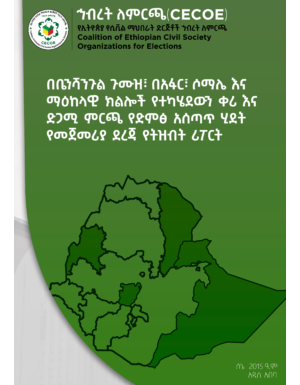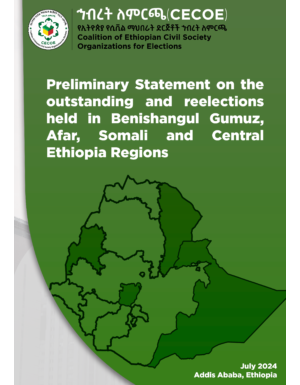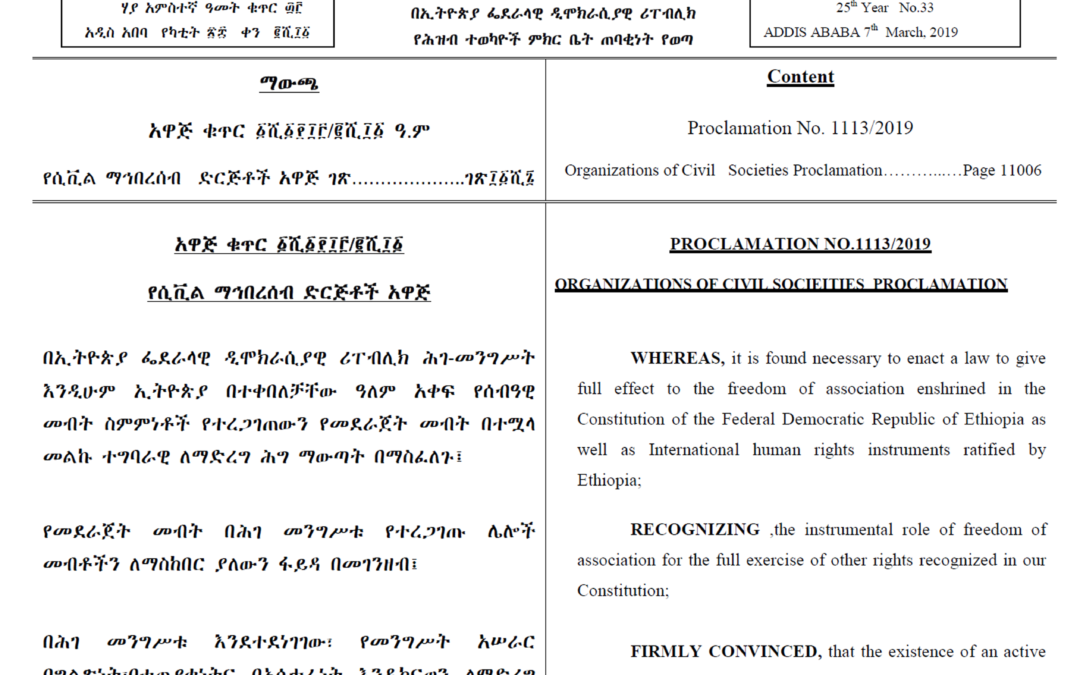
May 2, 2023
On March 12, 2019, the government of Ethiopia enacted a new law on civil society organizations (CSOs), the Organization of Civil Societies Proclamation No. 1113/2019 (CSO Proclamation). The CSO Proclamation replaces the Proclamation of Charities and Societies No. 621/2009 (2009 Proclamation).
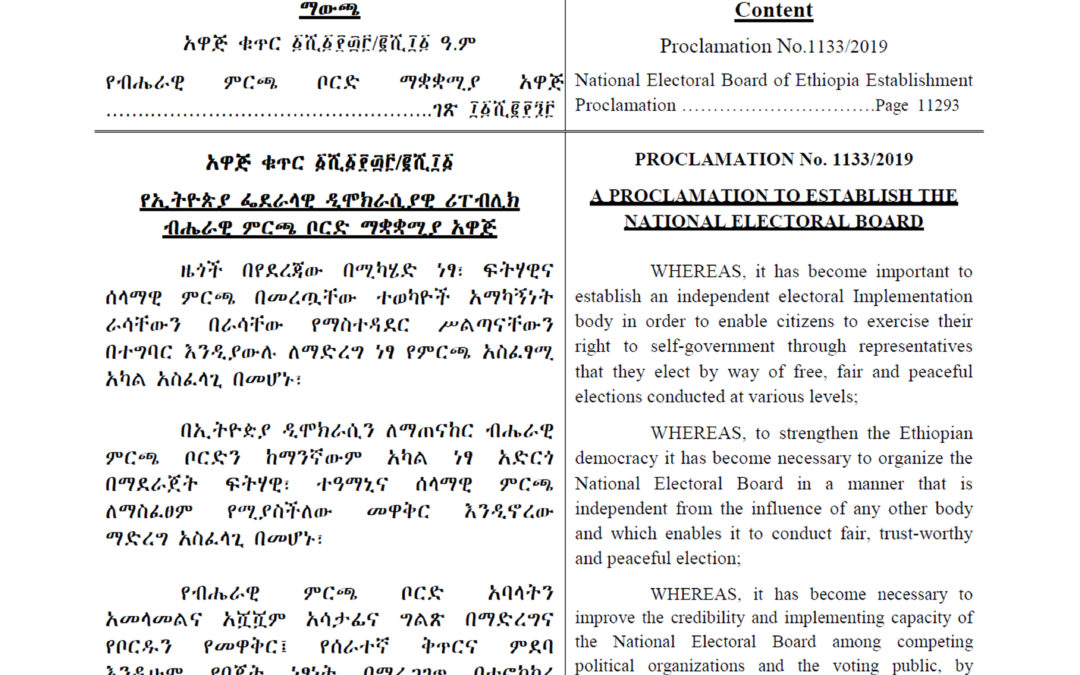
May 2, 2023
The National Electoral Board of Ethiopia is an institution established in accordance with the constitution of the Federal Democratic Republic of Ethiopia and the new proclamation is cited as the “National Electoral Board of Ethiopia Establishment Proclamation No. 1133/2019”. This Proclamation has come into force on April 1, 2019 upon approval by the House of People’s Representatives amending the previous electoral law Proclamation No. 532/1999.
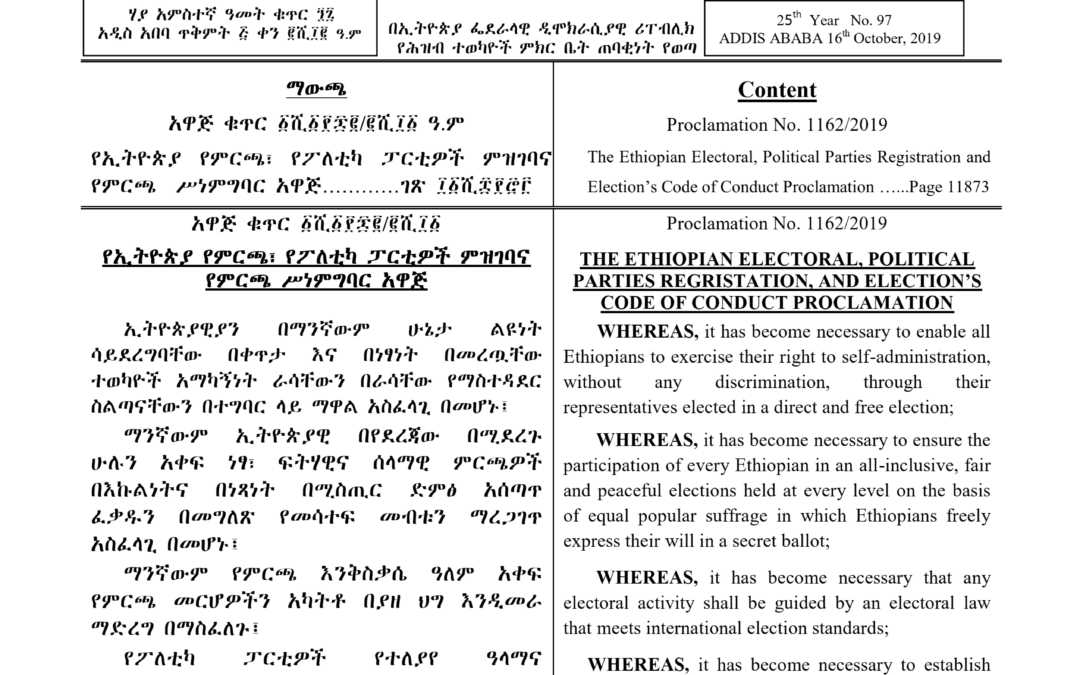
May 1, 2023
The law governing election registration and related conduct of political parties is called the “Ethiopian Electoral, Political Parties Registration and Electoral Code of Conduct No. 1162/2011”. This law came into force on the 24th of August 2019 by repealing and consolidating into one comprehensive legal document three separate laws, namely the Electoral Law of Ethiopia Proclamation No. 532/2007, Political Parties Registration Proclamation No. 573/2008 and Electoral Code of Conduct for Political Parties Proclamation No. 662/2009.
The new election law came to be revised with the view to ensure the participation of every Ethiopian in an all-inclusive, fair, and peaceful elections held at every level on the basis of equal popular suffrage in which Ethiopians freely express their will in a secret ballot, to enable political parties with different views to participate by expressing their opinions to the electorate in a lawful and peaceful manner, to enable the people to elect their representatives based on informed decisions and free expression of their will, and to regulate the institutions and procedures for managing administrative and judicial disputes in during the electoral process. The law contains different parts that emphasize on principles of elections, political parties, election observers and voter educations, grievance and disputes arising in elections and elections code of conduct.




